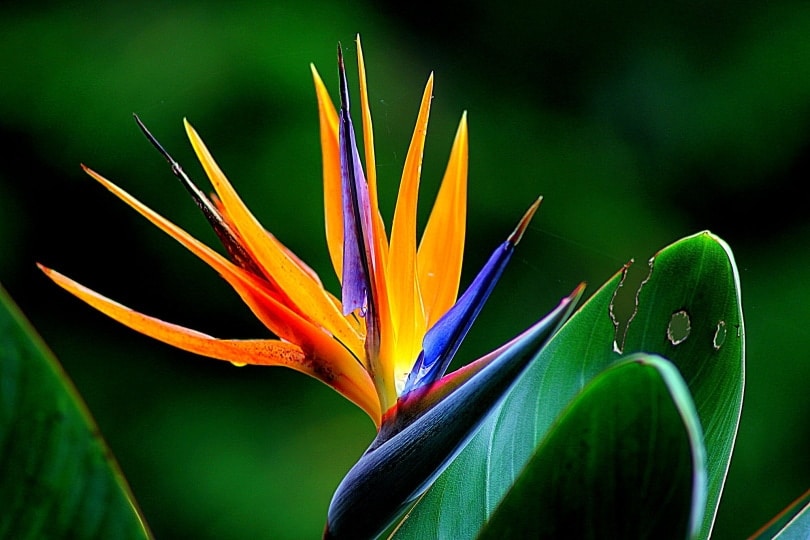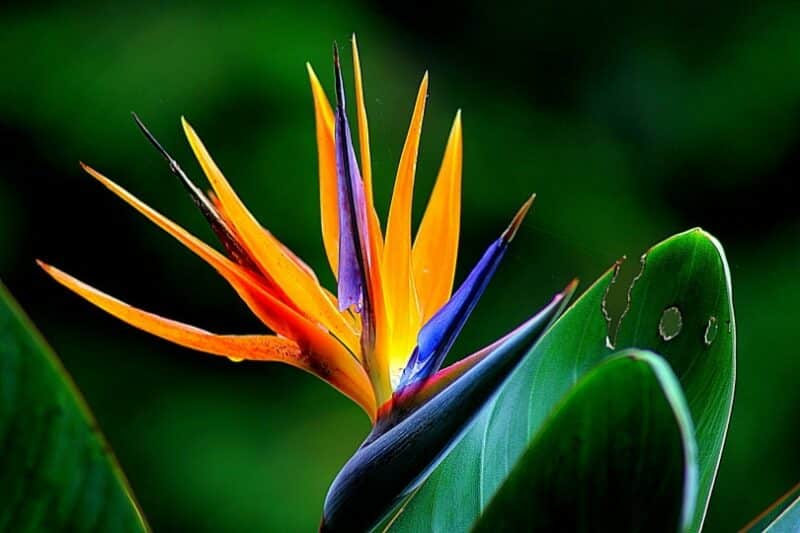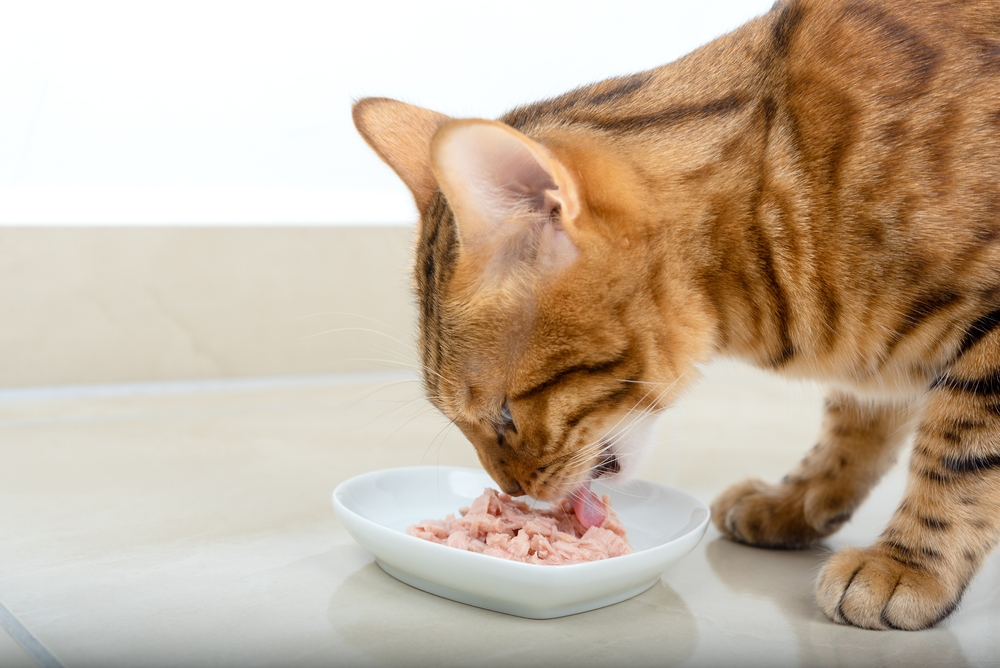The Bird of Paradise is a large houseplant with beautiful foliage and unique flowers. While it’s a common sight to see at plant stores, it’s not a good idea to bring one home if you live with cats. Birds of Paradise are toxic to cats1, and cats will experience mild signs if they ingest them.
Cats can be very curious, so it’s important to make the home environment as safe as possible. This includes bringing home the right plants. Because many common houseplants are toxic to cats, it’s important to do your research before buying one for your home.

Is the Bird of Paradise Plant Poisonous to Cats?
The Bird of Paradise, or Strelitzia reginae, is also commonly known as Crane Flower and Bird’s Tongue Flower. This houseplant contains gastrointestinal irritants that can cause stomach upset for cats and dogs. If your cat eats any part of the plant, you might see signs of an upset stomach. However, the fruit and seeds are the most toxic.
Birds of Paradise flowers start to make more appearances in summer flower arrangements. So, it’s best not to bring home a bouquet containing Birds of Paradise in case they’ve developed seeds.
The Bird of Paradise is not to be confused with the shrub Bird of Paradise. This plant is a different species, Poinciana gilliesii. It’s also known by the following names:
- Barbados Pride
- Peacock Flower
- Poinciana
- Pride of Barbados
It’s less common to see this plant, but it’s also toxic to cats. Therefore, it’s best to avoid both types of Birds of Paradise.
What to Do if Your Cat Eats Bird of Paradise
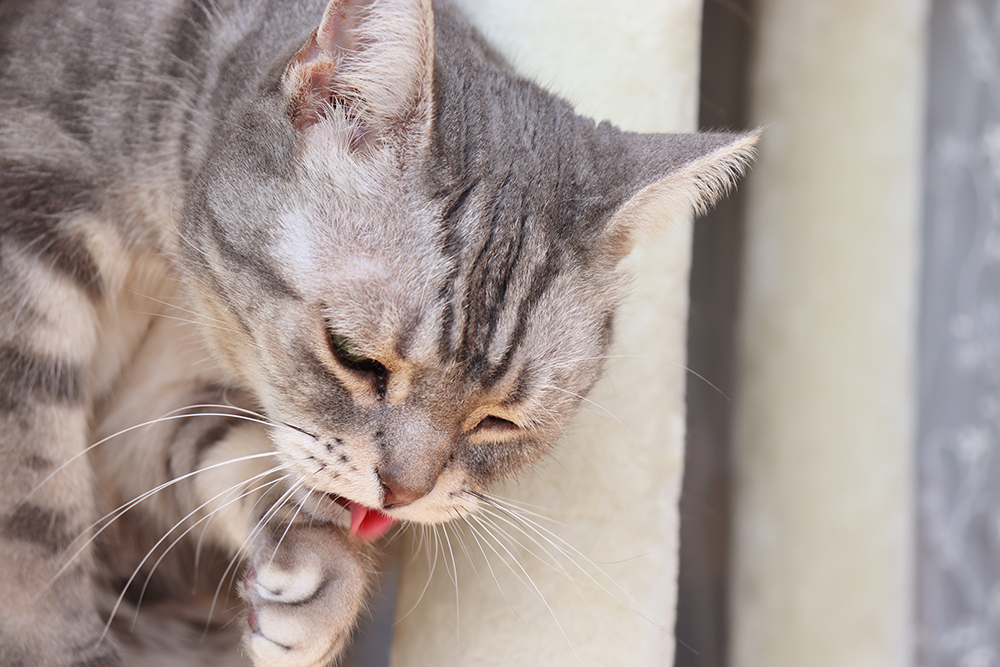
Fortunately, Birds of Paradise causes mild symptoms in cats. If your cat ingests a part of one, you can expect to see the following signs:
- Nausea
- Vomiting
- Diarrhea
- Drowsiness
The best thing to do is contact your veterinarian as soon as you notice that your cat has eaten a part of a Bird of Paradise. The helpful information that you can give your veterinarian is the amount that your cat has ingested and how much time has passed. If your veterinarian wants you to bring in your cat, make sure to bring a piece of the plant with you.
If your cat has an upset stomach, make sure to supply plenty of water and temporarily withhold food. Once your cat stops vomiting, you can feed it a bland diet and gradually help it transition back to its regular food.
Keeping Your Pet Safe from Houseplants
Birds of Paradise have large leaves that often split into strands. These leaves can be extremely tempting for cats to play with, and there’s a good chance that they’ll bite down on a leaf to get a better grip on it. So, if you already happen to have a Bird of Paradise in your home, try to relocate it to a room that your cat can’t access.
You can also try deterring your cats from going near a Bird of Paradise by placing a sticky tape border around the plant or using a scent that they don’t like. Cats don’t like the smell of citrus, so adding a lemon or orange peel to the plant pot might discourage your cat from approaching the plant. Just make sure to dispose of the fruit regularly before it starts to mold.
The best way to keep your cat safe is to avoid bringing home toxic houseplants altogether. Do your research before purchasing a houseplant. Doing a quick search on the ASPCA’s Toxic and Non-Toxic Plants List can be lifesaving.
- Azalea
- Caladium
- Daffodil
- Ficus
- Hyacinth
- Jade
- Lily
- Mandrake
- Philodendron
- Pothos
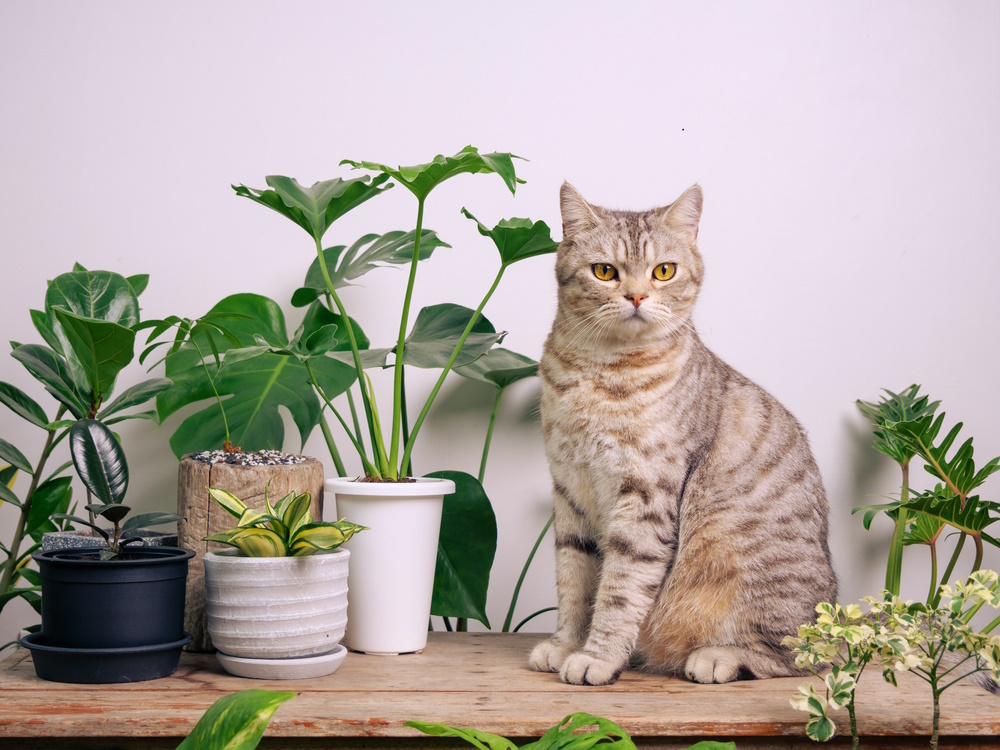
- African Violet
- Baby Rubber Plant
- Bird’s Nest Fern
- Boston Fern
- Christmas Cactus
- Parlor Palm
- Ponytail Palm
- Rattlesnake Plant
- Spider Plant
- Watermelon Peperomia
Conclusion
Birds of Paradise are mildly toxic to cats. So, if your cat ingests a part of the plant, you typically don’t have to worry too much. However, it’s still a good call to contact your veterinarian to see how you can help your cat alleviate or manage symptoms.
The best way to keep your cat safe is to be informed about toxic and non-toxic houseplants. Since you can find this information with a quick internet search, it’s pretty easy to ensure that your cat doesn’t encounter unsafe plants in the home.
Featured Image Credit: Rawpixel

